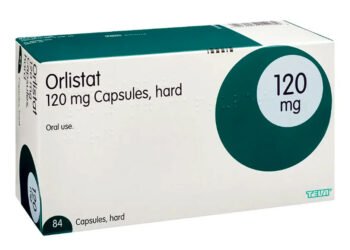In the United States, morbid obesity is the leading cause of numerous health complications and deaths. To combat this epidemic, bariatric surgeries have grown in popularity, the most popular of these surgeries being Single Anastomosis Duodeno-Ileal (SADI surgery). SADI surgery is a weight loss procedure that involves removing a portion of the stomach to reduce how much food it can hold. The small intestine is rearranged to make a shorter pathway for food to travel and limit the calories absorbed. This surgery has gained notoriety for its many advantages. Some examples of its advantages are its weight loss capability, reduced risk of nutritional deficiencies compared to competing procedures, its regulation of diabetes, and quicker recovery periods.
Weight Loss Benefits
The primary reason why anyone would look into this therapeutic surgery is for its benefits when it comes to weight management and metabolism health. SADI procedure induces more excess weight loss compared to other procedures by increasing the patient’s metabolism with fat malabsorption and limiting their stomach size to decrease appetite.
Reduced Risk of Nutritional Deficiencies
Many patients afterward struggle with a deficiency in vital micronutrients when it comes to weight loss procedures. It’s common for many after bariatric surgery to develop low levels of nutritional deficiencies, including thiamine, vitamin D, iron, folate, and vitamin B12. Low levels of these have many struggling with healing anemia, hair loss, neurological decay, bone disease, and in worse cases kidney failure. Said surgeries eliminate a lot of these risks due to their simplicity. It is recommended to regularly attend follow-up appointments with your bariatric team to monitor your progress.
Helps Control Diabetes
People who struggle with obesity also usually struggle with type 2 diabetes. Bariatric procedures have proven to manage diabetic symptoms with their weight loss capabilities and metabolism improvement. Sadi Surgery’s impact on diabetes management is undeniable with its changes in its reduction of blood sugar levels and reduced reliance on diabetes medicine. Choosing this surgery as a therapeutic option for Individuals suffering from morbid obesity and type 2 diabetes has made the procedure life-altering in many ways.
Quicker Recovery Periods
Due to its modernization compared to other procedures, Sadi Surgery surgical techniques make it less complex than other bariatric surgeries. This Surgery has fewer steps resulting in a shorter operation and a quicker return to everyday activities. Most can resume life after a few days to a week after the surgery only having to follow dietary and physical postoperative guidelines for maintenance.
The Advantages of SADI Surgery in Summary
With advantages such as weight loss, reduced risk of nutritional deficiencies, diabetes management, and quick recovery, Sadi Surgery signifies an advancement in bariatric surgery. As obesity continues to be prevalent in our society and rises worldwide, the importance of safe and efficient therapeutic procedures like this can not be overstated. By understanding and acknowledging these advantages potential patients can walk into this journey with a comprehensive approach to their weight health, the risks, and their needs when healing their quality of life.












